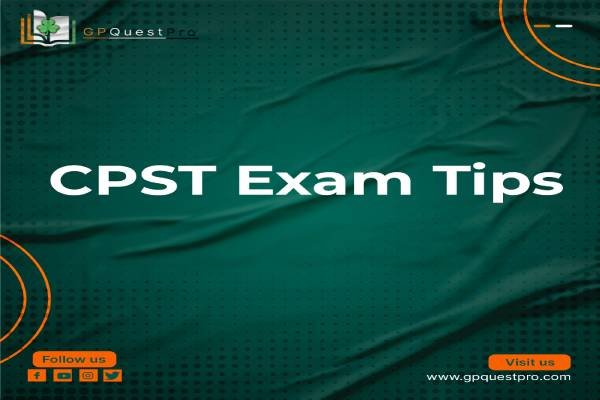The Clinical Problem-Solving Test (CPST) is a key part of the Irish College of General Practitioners (ICGP) GP trainee selection process. It is a 60-minute online exam (taken right after the SJT) that presents about 50 clinical scenarios in single best-answer format. Each question describes a common clinical presentation and requires you to choose the single most appropriate answer out of five options. The CPST is designed to assess your ability to diagnose, investigate, and manage common clinical problems at the level of a recently qualified doctor (intern level). In other words, it focuses on fundamental clinical knowledge and guidelines relevant to general practice and hospital medicine.
It’s important to note that the CPST is pass/fail – if you meet the required standard, you pass to the next stage (interview), but a high score won’t boost your ranking (unlike the SJT). The goal is simply to demonstrate safe and sufficient clinical knowledge. With that in mind, thorough preparation is essential. Below are 10 practical tips to help you prepare for and excel in the CPST.



Practice with a high-quality question bank (such as GPQuestPro’s) and use it to its fullest potential. Don’t just answer questions—read every detail of all the options and explanations. Even the incorrect options often contain important learning points (each can be “a question in itself”). After answering a question, use the question bank’s features e.g. topic buttons/Guides (Must do) or reference links to dive into the related topic and study it in depth. Make sure you memorize the key details from these explanations and topics. The GPQuestPro team is confident that if you thoroughly study and cram all the details in the question bank, you can’t fail the CPST.

If you have access to CPST “E-notes” or condensed study notes, use them for quick revision of high-yield topics. These electronic notes are great for a last-minute overview of important guidelines and facts. However, do not rely on E-notes as your sole preparation method. They are meant to supplement your study, not replace doing questions and reading full explanations. Use the E-notes in conjunction with your question bank practice and in-depth topic guides (as mentioned in Tip #1) to ensure you cover everything comprehensively.

Simulate the real exam by taking full-length Grand Mock tests under exam conditions. These comprehensive mock exams are high-yield – they cover a broad range of topics likely to appear on the CPST. Set aside 60 minutes, start a grand mock, and practice in one sitting without interruptions, just like on the actual test day. Doing timed mocks helps you gauge your performance, build stamina, and get comfortable with the exam’s format and pacing. By testing yourself in a realistic setting, you can identify areas of weakness and improve your time management before the real CPST.

Give yourself enough runway to prepare – starting 2-3 months before the test date is a good idea for most candidates. Make a study plan that covers all the topics and practice questions you need to go through. Spacing out your preparation will help you absorb information better than cramming at the last minute. For example, you might allocate time each day or week to specific clinical areas (cardiology, pediatrics, obstetrics, etc.) and mix in regular question practice. An early start also leaves time for revision of weaker areas as the exam approaches.

The CPST uses single best answer (SBA) multiple-choice questions, so it’s crucial to hone your approach to this format. Read each question stem carefully, and try to formulate an answer or diagnosis in your mind before looking at the options. Then read all five options thoroughly. Use elimination strategies: rule out options that are clearly wrong or less appropriate. Pay attention to keywords in the question (e.g. patient demographics, acute vs chronic, “next best step” vs “initial investigation”) as these guide you to the most appropriate answer. Practice lots of SBA questions so you become familiar with common traps and can quickly discern what each question is really asking.

Time management is vital – you’ll have roughly 60 minutes for 50 questions, which is just a little over a minute per question. During practice and mocks, train yourself to maintain a steady pace. If a question puzzles you, avoid getting stuck too long on it – it may help to make your best guess, mark it for review, and move on. By the end of the first pass, you should have answered all questions you can. Then use any remaining time to revisit marked questions. Practicing under timed conditions (as in Tip #3’s grand mocks) will help you develop an instinct for pacing. Remember to keep calm and think clearly – panicking can slow you down.

The CPST is aimed at intern-level knowledge and common clinical presentations, so prioritize studying the conditions and scenarios you are most likely to encounter as a junior doctor. Ensure you cover the breadth of general practice and hospital medicine: for example, managing chronic diseases (diabetes, hypertension, asthma), recognizing red-flag symptoms, emergency presentations (chest pain, acute abdomen, anaphylaxis), pediatrics and obstetrics basics, psychiatry emergencies, and so on. Use the question bank and official sample questions to identify these high-yield topics. ICGP provides sample CPST questions, go through them to see the style of cases asked. Align your studying with national clinical guidelines on these common topics – knowing the recommended investigations and first-line management for everyday conditions will serve you well.

While many clinical guidelines in Ireland are similar to those in the UK, some protocols and recommendations are specific to the Irish healthcare system. It’s important to study using resources that reflect Irish guidelines and practices. For example, there may be differences in national immunization schedules, screening programs, medication availability or antibiotic guidelines. A resource like GPQuestPro is tailored to the Irish context – it includes up-to-date Irish guidelines alongside the usual evidence-based practice. Make sure you’re familiar with the Irish versions of guidelines (ICGP quick reference guides, HSE protocols, etc.), because the CPST will expect you to know the local standard of care. In short, don’t solely rely on UK materials; use Irish-focused study materials so you won’t be caught off guard by a guideline nuance.

An effective preparation strategy is to continuously review your performance on practice questions and mocks. After each study session or test, go back over the questions you got wrong and the ones you weren’t 100% sure about. Read the explanations again and understand why the correct answer is right and why the others are wrong. If you discover gaps in your knowledge, take time to read the full topic or guideline (using the question bank’s topic guides or reference links provided in Q-Bank). Learning from mistakes is one of the fastest ways to improve. As you progress, you should see recurring themes – by the time you’ve reviewed thoroughly, you’ll notice you avoid repeating the same errors. This reflective practice ensures you’re constantly improving and not just memorizing answers.

Finally, set yourself up for success on the day of the CPST. By now, you should have done ample practice and feel confident in your knowledge. Make sure you get a good night’s sleep before the exam so you’re mentally sharp. Prepare your testing environment in advance – since the exam is online, ensure you have a reliable computer, a stable internet connection, and a quiet space free from interruptions. (The ICGP even recommends doing a system check on your device before test day to avoid technical issues.) Have your ID and any required details (like test login codes) ready so the check-in goes smoothly. During the exam, stay calm and focused. If you’ve followed the above tips – practiced thoroughly with question banks and mocks, reviewed the important topics, and are familiar with the format – you can tackle the CPST with confidence. Good luck!




Leave A Comment